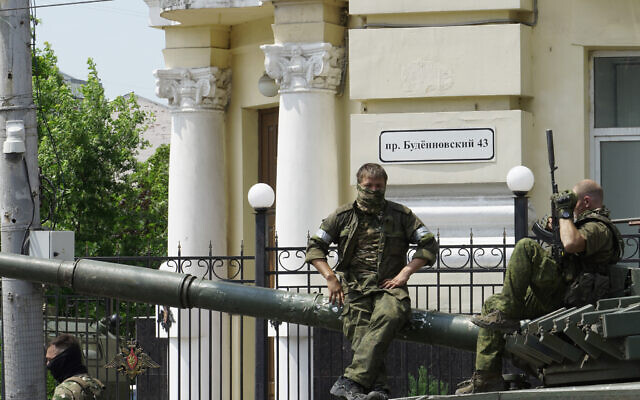Cabinet shields Haredi youth from military draft, 5 days before exemption law expiry
Defense minister will order the military not to enforce conscription of religious scholars until March 31, 2024, by which time the government plans to have passed a new law
Carrie Keller-Lynn is a political and legal correspondent for The Times of Israel

The government on Sunday approved a decision enabling the military to continue excusing ultra-Orthodox Israelis from the IDF draft, five days before the current exemption framework expires.
According to the text of the decision, the cabinet instructs Defense Minister Yoav Gallant to order the Israel Defense Forces to not enforce conscription within the community until March 31, 2024, by which time the government plans to have finalized a new enlistment law.
In the interim, the government will block the granting of new service deferments and will not extend expired ones, although the military will accept “certifications” from full-time religious scholars.
In 2017, the High Court of Justice invalidated the current conscription law, which gives sweeping exemptions to full-time religious scholars. It has given the government a series of extended deadlines by which to legislate a new enlistment law, and has allowed the Defense Ministry to rely upon the current, struck-down law until a replacement is passed. The government’s 15th, and current, extension to legislate a solution is due to expire at the end of July. However, the government’s underlying, invalidated law has a provision forcing its expiration — and the government’s timeline — a month sooner, on June 30.
Because the underlying law was struck down, the coalition could not simply renew it, and the government therefore passed its Sunday decision as a stop-gap measure, to give the military legal cover to refrain from drafting ultra-Orthodox youth until a permanent solution can be legislated.
Pressed by ultra-Orthodox parties, the government committed on Sunday to introduce a new draft bill ahead of the Knesset’s winter session. It is expected to be passed alongside bills that improve conditions for soldiers and reservists, in the hope of calming the serving public’s frustration over the ongoing exemptions.

A remnant from agreements made in the early days of the Israeli state, the ultra-Orthodox community has long skirted mandatory military conscription by enrolling in full-time religious study until past the enlistment age threshold. The issue came to a head a decade ago, alongside a broader discussion about sharing the country’s economic and service burden, much of which falls on the mainstream middle class.
In addition to the law struck down by the High Court in 2017, a previous version of the enlistment exemption law was knocked down in 2012.
Right-wing opposition party head Avigdor Liberman, who broke his former alliance with Prime Minister Benjamin Netanyahu in part over the question of ultra-Orthodox enlistment, tweeted that the cabinet decision “is another stop on the way to an evasion law, instead of a conscription law for all.”
“Without full equality in sharing the burden in the economy and in security, we will not have a country,” he added.
ההחלטה שאישרה הממשלה לפני זמן קצר היא עוד תחנה בדרך לחוק ההשתמטות במקום חוק גיוס לכולם. בלי שוויון מלא בנטל גם בכלכלה וגם בביטחון, לא תהיה לנו מדינה.
— אביגדור ליברמן (@AvigdorLiberman) June 25, 2023
The cabinet decision stated that the future bill will work to enable ultra-Orthodox youth to enter the workforce earlier, presumably by lowering the exemption age for religious scholars from 26 to 23.
About half of ultra-Orthodox men are not employed full-time, in part due to the lengthy full-time religious study required to dodge military recruitment, and the strain it places on transitioning from a funded study system to undertaking higher education or a career.
The decision also instructed Gallant and Finance Minister Bezalel Smotrich to draft plans for improving soldier and reservist conditions, to be presented to Netanyahu within 45 days.
Shortened service terms for non-critical personnel, boosted salaries for some mandatory service soldiers, and financial benefits for active reservists are among the measures being weighed as a part of a “service appreciation” bill to accompany the suite of exemptions.









